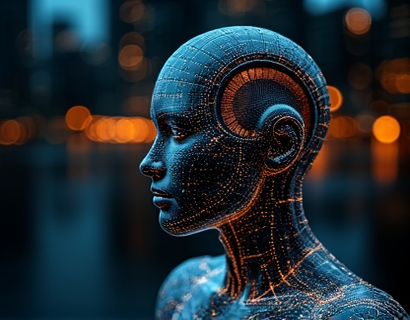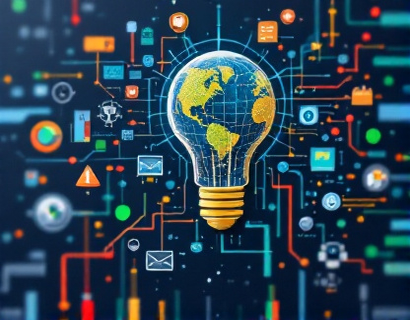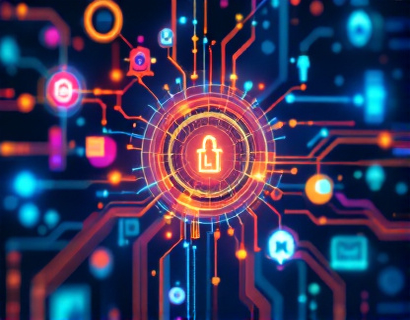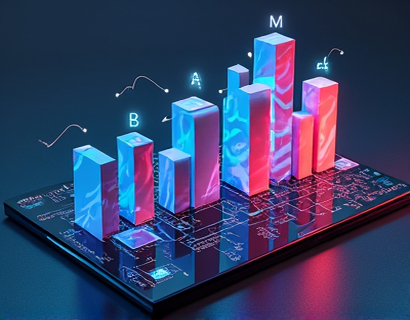AI-Powered Chatbot: Safe and Verified Access to Workshop Insights and Industry Knowledge for Educators and Young Learners
In the rapidly evolving landscape of education, technology plays a pivotal role in shaping how knowledge is disseminated and absorbed. One of the most promising advancements in this domain is the development of AI-powered chatbots. These intelligent systems offer a secure and verified platform for children and students to access specialized industry insights and workshop knowledge. By enhancing learning through safe and interactive content, AI-driven educational chatbots are revolutionizing the way young learners engage with information.
The Role of AI in Education
Artificial Intelligence (AI) has transformed various sectors, and education is no exception. AI technologies are being integrated into educational tools to create personalized learning experiences, streamline administrative tasks, and provide instant access to information. AI-powered chatbots, in particular, serve as virtual assistants that can interact with users in real-time, answering questions and providing resources tailored to individual needs.
Understanding AI-Powered Chatbots
AI-powered chatbots are software applications that use natural language processing (NLP) and machine learning algorithms to simulate human conversation. These chatbots can understand and respond to user inquiries, making them an invaluable resource for educators and students alike. They can provide information on a wide range of topics, from academic subjects to industry-specific knowledge, all while ensuring a safe and engaging environment for young users.
Safe and Verified Content for Young Learners
One of the primary concerns when it comes to children and technology is safety. Parents and educators want to ensure that the content accessed by young learners is appropriate and reliable. AI-powered chatbots address this concern by offering verified content that has been curated specifically for educational purposes. This means that students can explore various topics without the risk of encountering harmful or misleading information.
Content Verification Process
The content provided by AI chatbots is typically verified through a rigorous process that involves collaboration with educational experts and industry professionals. This ensures that the information is not only accurate but also relevant to the current educational landscape. By utilizing trusted sources and up-to-date research, these chatbots can deliver high-quality content that enhances the learning experience.
Interactive Learning Experience
Engagement is a crucial factor in effective learning. AI-powered chatbots create an interactive learning experience that encourages students to ask questions and explore topics in depth. Unlike traditional learning methods, which can often be passive, chatbots promote active participation. Students can engage in conversations, seek clarification on complex subjects, and receive instant feedback, making the learning process more dynamic and enjoyable.
Personalized Learning Paths
Every student has unique learning needs and preferences. AI chatbots can analyze user interactions and adapt their responses accordingly, creating personalized learning paths. This means that students can receive tailored information that aligns with their interests and academic goals. By catering to individual learning styles, AI chatbots can help students grasp concepts more effectively and retain information longer.
Access to Specialized Industry Insights
In addition to academic content, AI-powered chatbots can provide students with insights into various industries. This is particularly beneficial for young learners who are exploring potential career paths or seeking to understand the practical applications of their studies. By accessing specialized industry knowledge, students can gain a deeper understanding of the skills and competencies required in different fields.
Career Exploration and Guidance
AI chatbots can serve as valuable resources for career exploration. They can provide information about different professions, required qualifications, and industry trends. This guidance can help students make informed decisions about their future educational and career paths. By offering insights into various industries, chatbots empower students to pursue their passions and align their studies with their career aspirations.
Enhancing Educator Support
AI-powered chatbots are not only beneficial for students but also for educators. Teachers can leverage these tools to enhance their instructional methods and provide additional support to their students. By integrating chatbots into the classroom, educators can create a more interactive and engaging learning environment.
Supplementing Classroom Learning
Chatbots can serve as supplementary resources for classroom learning. Educators can direct students to interact with the chatbot for additional information on specific topics, allowing for a more comprehensive understanding of the subject matter. This not only reinforces classroom learning but also encourages students to take initiative in their education.
Administrative Support for Educators
In addition to supporting student learning, AI chatbots can assist educators with administrative tasks. They can help manage schedules, answer frequently asked questions, and provide resources for lesson planning. By automating these tasks, educators can focus more on teaching and less on administrative burdens, ultimately enhancing the overall educational experience.
Building Digital Literacy Skills
In today's digital age, it is essential for students to develop strong digital literacy skills. AI-powered chatbots can play a significant role in fostering these skills by encouraging students to navigate technology confidently. As students interact with chatbots, they learn how to communicate effectively in a digital environment, enhancing their overall digital literacy.
Critical Thinking and Problem-Solving
Engaging with AI chatbots also promotes critical thinking and problem-solving skills. Students are encouraged to ask questions, analyze responses, and think critically about the information they receive. This process not only enhances their understanding of the subject matter but also equips them with essential skills that are valuable in both academic and real-world contexts.
Challenges and Considerations
While AI-powered chatbots offer numerous benefits, there are also challenges and considerations to keep in mind. Ensuring the effectiveness and reliability of these tools requires ongoing evaluation and improvement. Additionally, it is essential to address concerns related to data privacy and security, particularly when it comes to young users.
Data Privacy and Security
Protecting the privacy of young learners is paramount. Developers of AI chatbots must implement robust security measures to safeguard user data and ensure compliance with relevant regulations. Parents and educators should also be informed about how data is collected and used, fostering transparency and trust in the technology.
Continuous Improvement and Feedback
To maintain the effectiveness of AI chatbots, continuous improvement is necessary. Gathering feedback from users, including students and educators, can provide valuable insights into the strengths and weaknesses of the chatbot. This feedback can inform updates and enhancements, ensuring that the chatbot remains a relevant and effective educational tool.
The Future of AI in Education
The future of AI in education is promising, with the potential for even more innovative applications. As technology continues to advance, AI-powered chatbots will likely become more sophisticated, offering even greater levels of personalization and interactivity. This evolution will further enhance the learning experience for students and educators alike.
Integration with Other Educational Technologies
AI chatbots can be integrated with other educational technologies, such as learning management systems and virtual classrooms. This integration can create a seamless learning experience, allowing students to access a wide range of resources and support in one place. By combining the strengths of various technologies, educators can create a more holistic approach to teaching and learning.
Global Accessibility and Inclusivity
AI-powered chatbots have the potential to enhance global accessibility and inclusivity in education. By providing information in multiple languages and accommodating diverse learning needs, these chatbots can reach a broader audience. This inclusivity ensures that all students, regardless of their background or circumstances, have access to quality educational resources.
Conclusion
AI-powered chatbots represent a significant advancement in the field of education, offering safe and verified access to workshop insights and industry knowledge for educators and young learners. By providing interactive and personalized learning experiences, these chatbots enhance engagement and foster a deeper understanding of various subjects. As technology continues to evolve, the potential for AI in education is limitless, paving the way for a more informed and empowered generation of learners.









































